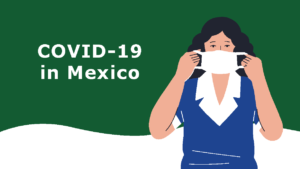August 26, 2020
 The Mexican federal government announced a remote learning mandate until further notice to reduce the risk of COVID-19 exposure, with educational institutions resuming classes on Monday, August 24. The instruction excluded higher education, allowing universities to determine when and how to resume studies based on local circumstances. The Secretariat of Public Education (SEP) signed a collaboration agreement with multiple television networks and radio stations which began broadcasting educational programs nationwide. In addition, SEP will continue to provide free textbooks to students enrolled in public schools (grades K-9) and is developing a strategic plan to support working single parents.
The Mexican federal government announced a remote learning mandate until further notice to reduce the risk of COVID-19 exposure, with educational institutions resuming classes on Monday, August 24. The instruction excluded higher education, allowing universities to determine when and how to resume studies based on local circumstances. The Secretariat of Public Education (SEP) signed a collaboration agreement with multiple television networks and radio stations which began broadcasting educational programs nationwide. In addition, SEP will continue to provide free textbooks to students enrolled in public schools (grades K-9) and is developing a strategic plan to support working single parents.
In Baja, the Secretariat of Sustainable Economy and Tourism (SEST) signed a memorandum of understanding with Baja Health Cluster in an effort to reactivate medical tourism in the region. The agreement will facilitate data sharing; joint research to further understand the demand of health services across the state; specialized training for health professionals; and increased collaboration to promote medical tourism.
In Tijuana, a private sector-led initiative has been launched to support the city and state’s ability to test and track COVID-19 cases. The effort also helps to identify vulnerable neighborhoods and areas across the region which will support their strategy to combat the virus. This initiative comprises a system of 17 laboratories with the ability to conduct up to 500 COVID-19 tests onsite at a discounted rate and, in some cases, businesses are covering the cost for their employees. Results are available within 24 hours and submitted into a database which maps positive results. For more information, please contact Francisco@wellwavescenter.com.
A new COVID-19 testing site has opened outside of the San Ysidro East Pedestrian Port of Entry (PedEast) processing area, located next to the trolley station. The site operates from 6:30a-10:30 a.m. Monday through Friday and offers about 200 free tests daily for interested individuals. Although the initiative is primarily to serve essential workers and American citizens living in Tijuana, local residents are also welcome, and no appointments are necessary.
Health and safety checkpoints have been set up at the Ensenada and Mexicali city access points to ensure adherence to stay at home orders. This includes the Calexico West, Calexico East, and Andrade/Algodones land ports of entry, where checkpoints have been operating each Friday through Sunday. Authorities will verify the use of face masks, confirm that the trip’s purpose is essential, and conduct temperature checks for each passenger. There is also a limit of two passengers per vehicle crossing southbound through Mexicali’s land ports of entry.